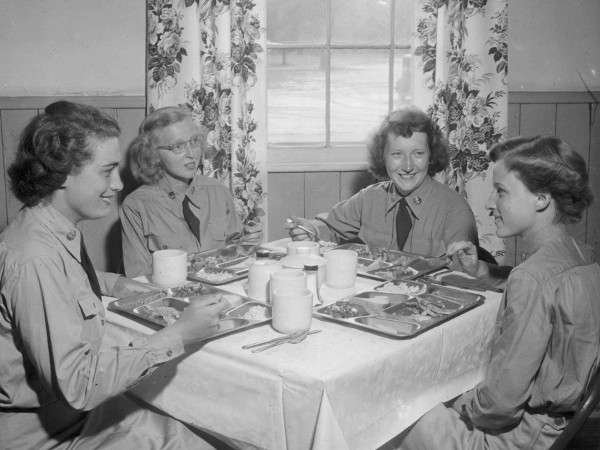Porn, Instant Gratification and Revisionist History
 LONDON – One of the few advantages to getting older is when certain exaggerated social concerns cycle back through the op/ed pages of the international media, old farts like me immediately recognize them as recycled and retread, as opposed to new and novel.
LONDON – One of the few advantages to getting older is when certain exaggerated social concerns cycle back through the op/ed pages of the international media, old farts like me immediately recognize them as recycled and retread, as opposed to new and novel.
When it comes to people freaking out over the negative impacts and influences of pornography (a concern as old as porn itself), the novel aspect that is so worrying to a lot of people is the easy access to porn offered by the internet, a distribution mechanism which, true enough, didn’t exist when I was a kid.
Even when the media is presented with a legitimately game-changing technology like the internet though, it doesn’t mean every side effect and underlying worry the media tries to pin on the technology is also new, or even valid.
Take this recent op/ed from the pages of The Guardian, for example, in which writer Andrew Brown frets aloud about porn encouraging a culture of instant gratification, which he argues gave rise to reality TV and the presidency of Donald Trump.
“The pornification of everything is the business model of commercial television and the ad-supported internet,” Brown wrote. “It’s not just about sex. The fantasies of control, domination and immediate gratification are now the ideal in all commercial transactions. They are what almost every advertisement promises. The frictionless and utterly convenient world of online shopping is much closer to porn than to offline trudging and bargaining.”
Unless Brown is a lot younger than he looks, I have a hard time believing he’d never been exposed to promises of instant gratification in advertising prior to this “pornification of everything” he references. From the American fast-food restaurant explosion of the 1970s to the patenting of “instant” coffee (which took place in New Zealand in 1890, by the way), the allure of instant gratification in a commercial context is neither new nor novel.
Much of what we now consider normal, standard practice would strike consumers of previous generations as lofty promises of instant gratification. Going from New York to Los Angeles in a matter of hours? Imagine explaining this now-mundane fact of life to those who trekked west during the California Gold Rush, when traveling the same distance took a minimum of around 100 days.
As for shopping, Brown would be happier if instead of ordering from Amazon, we had to drive our gas-guzzling vehicles down to a store that may or may not have what we want in stock? Swell. He can have my place in line — especially when Black Friday rolls around.
Where Brown sees a threatening and frightening new reality, all I see is an extension of what has always been part and parcel of the human condition.
As a species, we’ve always been caught between clinging to the traditional ways of doing things and striving to make things easier, faster and better. This is not to say the newer ways of doing things we develop are always better than the traditional, just that tension will always exist between the old and new forms of “normal.”
I’m guessing Brown’s column was not composed on a typewriter, but a computer. I’m also guessing any changes he and/or his editors made did not require typing up a whole new draft of the column, but simply deleting and inserting text as needed to hammer the thing into its final form.
Should we be alarmed by the “instant gratification” provided by whatever CMS and/or word processing software Brown uses, or would it just be silly to suggest the old means of creating newspaper content are inherently superior, simply because they require more work and greater consumption of resources to accomplish the same end?
I’m not entirely closed to Brown’s concerns about the problematic aspects of a culture of instant gratification. I just think blaming the development of this culture on internet porn is intellectually lazy and easily contradicted by even a cursory examination of human history. I also think his argument hits its weakest point when he tries to hitch the political success of Donald Trump to the rise of internet porn.
“The pornification of politics is what gave us Donald Trump: He established himself as a public figure through a ‘reality’ show in which he acted the part of the omnipotent autocrat whose whim was law,” Brown wrote. “The purpose of ‘reality’ TV, and of advertising more generally, is to subvert our instincts about reality in the real world, something which is at least as damaging as sexual porn and is very closely related to it.”
First, Trump did not establish himself as a public figure through a reality TV show. He was a public figure long before he was given the reality TV show. Whether you feel he reached the level of public figure in the 1980s or the 1990s, one thing is sure: Internet porn and reality TV had nothing to do with it.
It might be tempting to blame porn and/or reality television for the increasing efficacy of personal obnoxiousness and chronic exaggeration as attention-getting devices, but the truth is Trump tapped into this approach long before the internet became a vector of self-promotion. For that matter, American consumers and media outlets started responding with approval to obnoxious self-promotional behavior long before Trump.
Brown is free to blame porn for whatever he wishes, of course. I just think if what he’s pining for is a time when people didn’t want their sundry desires to be sated as quickly as possible, then he’s getting nostalgic for an idealized past that never existed in the first place.
Image © Ned Horton.













